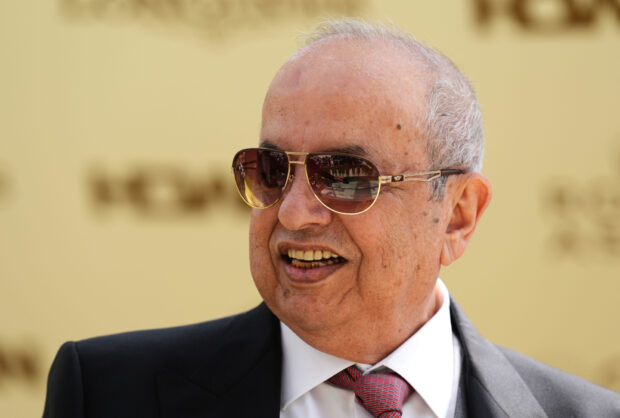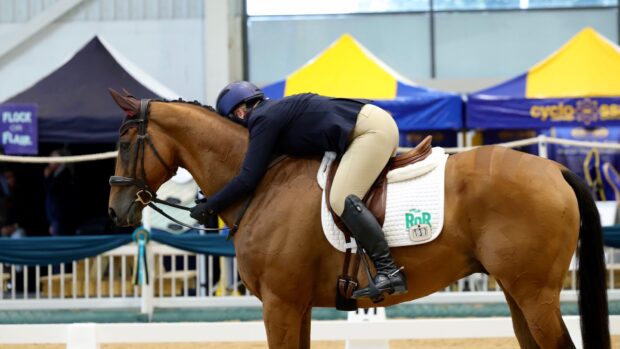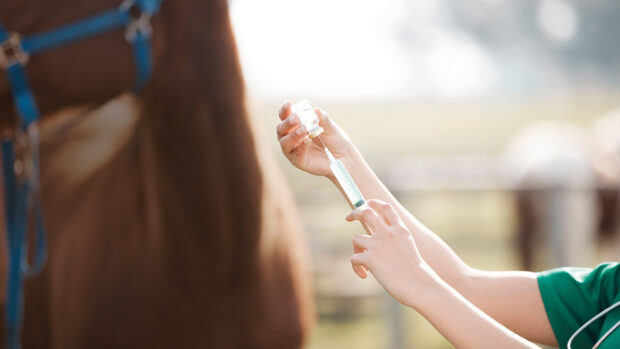A jockey who failed a drugs test after trying to pass off someone else’s urine as his own to cover up his cocaine use has been served with a lengthy suspension.
Graham Gibbons, a successful freelance rider, was banned for two-and-a-half years by the British Horseracing Authority’s (BHA) disciplinary panel on 5 October. Mr Gibbons voluntarily handed in his licence when the BHA opened an investigation shortly after the incident in December.
Mr Gibbons was asked to provide a urine sample at Kempton on 7 December 2016, but was worried he might fail due to taking a “significant amount” of cocaine the previous evening.
He approached 19-year-old apprentice Callum Shepherd in the toilets of the jockeys’ changing area and asked him to urinate into a small bottle.
“Mr Shepherd, feeling pressured to comply with the request of a senior jockey, did as he was asked,” read a statement from the hearing.
“Once Mr Gibbons had the urine sample from Mr Shepherd, he took the bottle and placed it down the front of his breeches.
“He then went to the racecourse medical room where the racecourse sampling unit was situated to provide a sample of urine for testing purposes.”
Mr Gibbons managed to surreptitiously pour Mr Shepherd’s urine from the bottle into the cup, before piloting his only booked ride for the evening, Button Up, to sixth place in the mile maiden.
Mr Shepherd told valet David Mustoe what he had done and Mr Mustoe reported the matter to clerk of the course, Jeremy Lind.
A stewards’ enquiry took place shortly before 6pm that day and Mr Gibbons admitted to what he had done. He then provided a urine sample, which was found to have the maximum level of cocaine metabolite benzoylecgonine that can be registered.
No further action was taken against Mr Shepherd.
Article continues below…
You might also be interested in:

Most expensive yearling in the world sells for £4m
The filly is the most expensive yearling sold

Grand National hero out for the season with injury
Trainer Lucinda Russell said the horse’s welfare “comes

Horse injected in stables at Cheltenham Festival: pair banned for three years
‘The real vice of what they did here
In mitigation, Mr Gibbon’s lawyer Rory Mac Neice stated his client had not intended to make Mr Shepherd feel under pressure and that it had been a “spur of the moment decision”.
He also emphasised that Mr Gibbons had accepted full responsibility from the initial enquiry; had co-operated with the investigation and had been on a course to help tackle his alcohol and drug problems.
The panel ruled Mr Gibbon’s attempt to present another jockey’s urine as his own struck “at the heart” of the clean sport process.
“The risk of injury to horses and riders in a race is self-evident,” stated the panel.
“Furthermore, by his dishonest action, Mr Gibbons was allowed to ride in his race at 5.15pm, when he knew very well he would fail a test for cocaine. Fortunately, no untoward incident occurred in that race.”
The panel added that by producing a bottle for Mr Shepherd to urinate in, Mr Gibbons showed some level of premeditation.
The panel ruled Mr Gibbons should have his licence withdrawn for six months for the positive cocaine test, which they backdated from 8 December to 7 June; and for two years from 8 June 2017 to 7 June 2019 for his attempted cover-up.
“The panel finally wish to congratulate Mr Shepherd on his honesty, and courage in bring this matter to the attention of the authorities as soon as he did,” adds the statement.
“Likewise the panel are grateful to Mr Mustoe and Mr Lind for ensuring that the matter came promptly to the attention of the stewards on the day.”
For all the latest news analysis, competition reports, interviews, features and much more, don’t miss Horse & Hound magazine, on sale every Thursday




